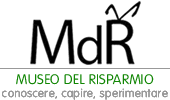On January 24th the conference “New Italians: knowledge needs and integration” took place at the Museum of Saving.
Open to Organizations and Associations, the event focused on financial knowledge and the economic and working inclusion of new Italians.
In the presence of Monica Cerutti, Councilor for Rights and Immigration of the Piedmont Region and Marzia Sica, responsible for Social Policies of the Compagnia di San Paolo, the conference opened with a presentation by Giovanna Paladino (director and curator of the Museum of Saving) of the results of the research of the Museum of Saving and Intesa Sanpaolo conducted by IPSOS “Financial Education, needs and expectations of new Italians”.
The survey, the first on these topics ever carried out in Italy, involved economic immigrants resident in Italy for a period between 3 and 10 years, for whom the responsible management of money and savings is a crucial aspect of being active citizens.
The result was that 30% of the immigrants interviewed know the basic principles of finance (compared to 37% of Italians), giving the correct answer to the 5 questions aimed at testing basic financial education. Furthermore, 49% of migrants interviewed say they are able to save, driven by a “need for tranquility” and 21% manage to put away more than 20% of their income. The main objective (for 77%) is to carry out projects in Italy, such as buying a house (40%), opening their own business (26%) or buying a car or motorbike (22%). Only 2% say they want to complete their studies.
The use of financial products and services is limited to cards and loans/mortgages and is more frequent in those with a high level of financial knowledge, while financial investment is not significant even in the insurance and social security component.
Finally, savings fuel remittances: 61% of the sample send money to their country of origin at least once every 6 months (65% men vs 55% women).
The job placement of migrants was then the focus of the intervention by Alessandra Venturini, professor of Migration Economics at the University of Turin.
For further information, see the slides “Migrants and job placement”
The results of the “Welcom-ED” project, an initiative of the Museum of Saving, with the collaboration of the University of Turin, to respond to the financial education needs of migrants, were then illustrated.
Between 2017 and 2018, the initiative involved 300 final beneficiaries, with the support of numerous local associations working with migrants and the Centers for Adult Education (CPIA) of Turin and its province.
The path, carried out through a direct approach and a participatory and interactive methodology (guided discussion, group exercises and games, sharing of experiences and points of view) took place in two training sessions delivered in Italian, but with the assistance of cultural mediators. The two modules focused respectively on building the family budget and on the ABC of investments.
The impact assessment of the project, conducted by the University of Turin (Samuel Nocito and prof. Alessandra Venturini) through pre- and post-treatment questionnaires, confirmed the effectiveness of the proposed activity in improving the level of financial literacy of the participants and a high level of satisfaction.
See slides Welcom-ED project.
At the end of the morning, a specific space was dedicated to dialogue and discussion, through a round table which allowed some representatives of the associations and CPIA to bring their own testimony relating to the path carried out in collaboration with the Museum and the activities organized independently to promote the social inclusion and economic and work integration of migrants.
At the end, Enrico Maria Barale, Oculus Digitale, presented the photographic exhibition “The savings routes”, composed of 9 images “captured” during the Welcom-ED sessions carried out at the Museum. From this experience a photography course dedicated to migrants was born which will be held at the Museum during the months of February and March. The results will be displayed in a special photographic exhibition on the Museum premises in the coming months.
